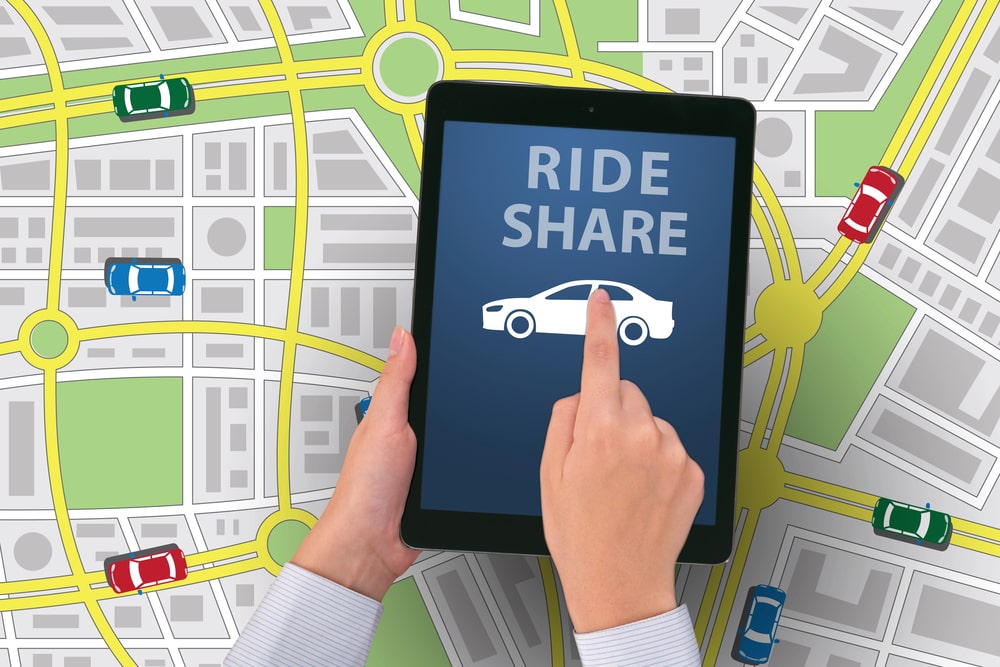Blog
Understanding Rideshare Accidents in New Jersey: Uber and Lyft Claims Explained
- October 01, 2025 Leer en Español

Rideshare services like Uber and Lyft have changed how people travel, but when an accident happens, understanding who is responsible and how to get compensated can be confusing. New Jersey law treats rideshare collisions differently from standard car accidents because they involve layered insurance coverage and unique liability rules. If you were injured in an Uber or Lyft accident, knowing how these claims work can help protect your rights and your recovery.
How Uber and Lyft Insurance Works in New Jersey
In New Jersey, rideshare coverage depends on what the driver was doing in the app at the time of the crash. The law requires specific insurance limits for each situation.
- App off (driver not logged in): The driver’s personal auto insurance applies. Uber or Lyft coverage does not apply.
- App on, waiting for a ride request: Uber and Lyft must provide at least $50,000 in bodily injury coverage per person, $100,000 per accident, and $25,000 for property damage.
- Ride accepted or passenger in the vehicle: Once a trip is accepted or the passenger is onboard, rideshare companies must provide $1.5 million in liability coverage and $1.5 million in uninsured and underinsured motorist coverage.
Because New Jersey is a no-fault state, your personal injury protection (PIP) coverage usually pays for medical treatment first, even if you were a rideshare passenger. Determining which insurance applies can be complicated, which is why legal guidance is critical early in the process.
Who Is Responsible When You Are Hurt
Liability in a rideshare crash depends on who caused the accident and the driver’s status in the app. If the rideshare driver is at fault, the rideshare company’s insurance usually covers the damages. If another driver caused the collision, their insurer is responsible first, and Uber or Lyft’s policy may cover additional losses if necessary.
Multiple insurance companies may be involved, and New Jersey’s comparative negligence law allows damages to be reduced if you share any fault. Because each case involves different coverage rules and evidence, an experienced attorney can identify all available policies and maximize your recovery.
What to Do After a Rideshare Accident
Taking the right steps immediately after the accident strengthens your claim.
- Call 911 and request a police report.
- Seek medical care, even for minor injuries.
- Take photos of the vehicles, road conditions, and visible injuries.
- Save trip details from the Uber or Lyft app, including driver name and timestamps.
- Avoid giving recorded statements to insurers without consulting a lawyer.
- Contact a rideshare accident attorney as soon as possible.
These actions help preserve evidence and protect your rights from the start.
How Antonucci Law Helps Victims Recover Compensation
At Antonucci Law Firm, every rideshare accident case is handled with the attention it deserves. Led by Certified Civil Trial Attorney Stacey Antonucci, our firm combines courtroom experience with a personal, client-focused approach. We investigate each crash in detail, identify every applicable Uber, Lyft, and personal insurance policy, and build a strategy designed for maximum recovery. Because our firm prepares every case as if it will go to trial, insurance companies know we will not accept less than our clients deserve.
Our team fights for the full measure of compensation our clients deserve, including medical costs, lost income, diminished earning potential, pain and suffering, and future care needs. We guide each client through New Jersey’s complex no-fault system and stand firm against insurance companies that try to minimize valid claims.
If you or someone you love was injured in an Uber or Lyft crash, contact Antonucci Law Firm today for a free consultation. Call (908) 747-4477 or use our online contact form to get started. You pay no fees unless we win your case.
